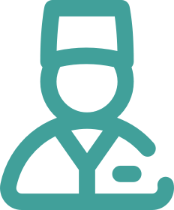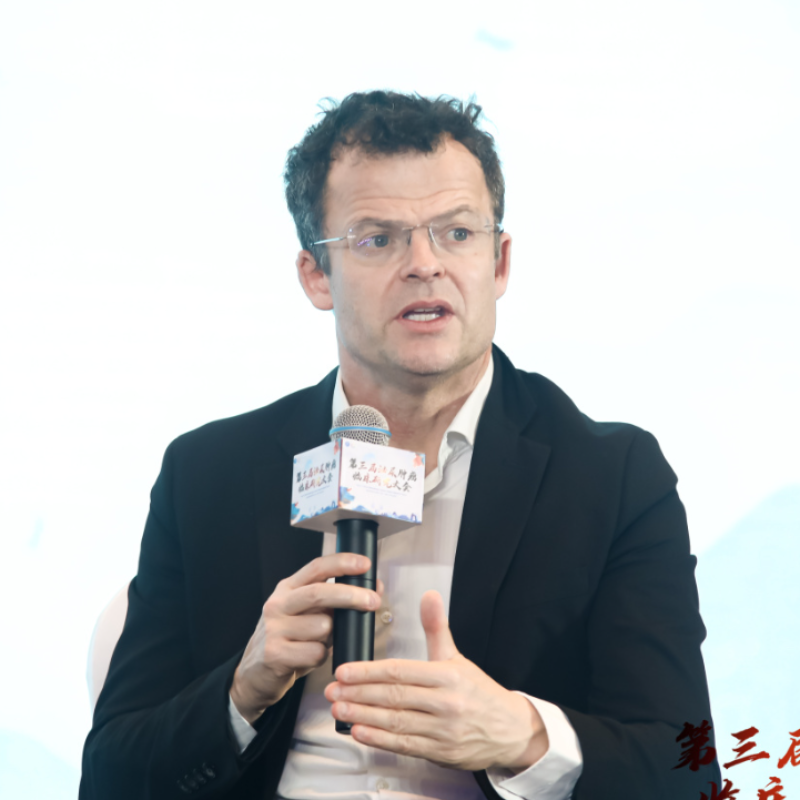查看更多
密码过期或已经不安全,请修改密码
修改密码
壹生身份认证协议书
同意
拒绝

同意
拒绝

同意
不同意并跳过





2025年4月19日,第三届泌尿肿瘤临床研究大会在北京正式召开。本次大会秉承传统,以主旨报告、中国泌尿肿瘤临床研究的现状、ADC药物的临床与探索、核素药物的腾飞、临床研究精读、细胞治疗篇、围手术期临床研究篇七个环节,聚焦泌尿肿瘤临床研究热点,集结泌尿内、外科医生和申办企业三方,对临床研究和诊疗实践的难点、困境及新方向、新思想进行了交流探讨。
伦敦玛丽女王大学巴茨癌症研究所Thomas Powles教授作为特邀嘉宾参会,并在“立足国内,面向世界”讨论环节,回答了与会学者的踊跃提问。中国医学论坛报今日肿瘤将该环节的5个问答整理成辑,为大家呈现一场中国专家和国际视野的交互碰撞。



李娟 教授
北京大学肿瘤医院
众所周知,目前细胞疗法如CAR-T、TCR-T和TILs在实体瘤领域已经有所进展。我想知道您如何看待这些疗法在经多线治疗后的晚期泌尿生殖系统癌症(尤其是肾癌)中的作用?它们会成为我们未来的希望吗?
As we know that,now cell therapy like CAR-T, TCR-T and TILs has recently advanced in solid tumor. So I want to know how do you see their roles in managing highly treated advanced GU cancer,especially in kidney cancer. Would it be our hope for tomorrow?
Prof. Thomas Powels
伦敦玛丽女王大学巴茨癌症研究所
我可能无法直接回答你的问题。不过,我可以谈谈免疫疗法在膀胱癌和肾癌治疗中的未来前景——我对这两种疾病略有了解,但它们的发展方向截然不同。
先说膀胱癌。我认为,凭借我们现有的药物,有很大一部分膀胱癌患者可以被治愈。不过,我之前也提到过,膀胱癌患者可能发生围术期死亡。或许,抗体药物偶联物(ADC)与免疫疗法的联合治疗能带来突破。我们之前也简单讨论过这一点。有一种HER2靶向药物T-DXd,我之前没有提到,它在HER2高表达的膀胱癌中表现出色。如果将它与EV以及帕博利珠单抗联合使用,这一三联疗法或许能治愈很多膀胱癌患者。所以,我认为这确实是一个机会。
至于第二代免疫疗法在肾癌中的应用,情况就复杂得多,效果也不如预期。明天我会详细谈谈肾癌的免疫治疗,特别是纳武利尤单抗(nivolumab)和帕博利珠单抗(pembrolizumab)这两种药物,它们已经彻底改变了肾癌的治疗格局。阿维鲁单抗(Avelumab)似乎也有一定帮助,但具体效果因人而异,有些人觉得效果显著。不过,我认为起主要作用的还是帕博利珠单抗和纳武利尤单抗。
然而,第二代免疫疗法的研发并不顺利,比如OX-40、CS-1等。我们目前正在进行IL-2的研究。所以,细胞疗法仍然充满希望。不久的将来,或许就会有细胞疗法试验结果公布,其中就包括CAR-T疗法的研究。此外,还有一些第二代免疫疗法正在探索中,比如LAG-3/TIGIT抑制剂……
但根据我在医院的使用经验,这些疗法的疗效并不显著。因此,尽管在膀胱癌领域,第二代ADC正在蓬勃发展,有望实现治愈,但我认为在肾癌领域,免疫治疗已经遭遇瓶颈。有趣的是,五年前的情况恰恰相反,当时我们对肾癌充满希望,而膀胱癌的治疗却停滞不前。现在,情况完全反过来了。
Thank you for your thoughtful questions. Obviously I don't know the answer to your question. I think the question around the future of immune therapy in bladder cancer and kidney cancer, which I know a little bit about, and the future beyond that is very different in the two diseases. I see, bladder cancer. I see us curing a large proportion of patients with bladder cancer with the drugs that we currently have. I genuinely think that's true. And I,you know,I think perioperative disease will kill patients. I said that five minutes ago. I think maybe ADC combinations with immune therapy, we talk a little bit about that. But there's a drug, there's a HER2 drug T-DXd, which I didn't talk about in HER2 high bladder cancer, that's got great activity. Combine that with enfortumab vedotin that might work with pembrolizumab as a triplet. that could cure bladder cancer, a lot of bladder cancer. So I think there is an opportunity.
The story of the second generation of immune therapies in kidney cancer is much more complicated and is less impressed. I'm going to talk a little bit about immune therapy in kidney cancer tomorrow, nivolumab、pembrolizumab particularly those two drugs have transformed kidney cancer. If Avelumab seems to help a little bit, but I'm not sure how much some people feel a lot. I think most of the work is being done by pembrolizumab and nivolumab. The second generation of immune therapies is not being successful. The OX-40s, the CS-1s. I could go on the IL-2s. We're currently doing the IL-2 study. So there is much hope for cellar therapies. There's a cellar therapy trial. There's a CAR-T study in the not too distant future that's gonna be presented. There are some other second generation of immune therapies that are being explored, LAG-3/TIGIT……
My experience of these would use these in our hospital is they haven't been overwhelming. So while the second generation of antibody drug conjugates are exploding in bladder cancer that will cure the disease, I think we are reaching a plateau with immune therapy in kidney cancer. So it's interesting to be revolved in two diseases, because five years ago it was the opposite, we had all this hope in kidney cancer, but bladder cancer was not moving. And now it's the other way around.
整理 | 中国医学论坛报 黄琳琳
查看更多